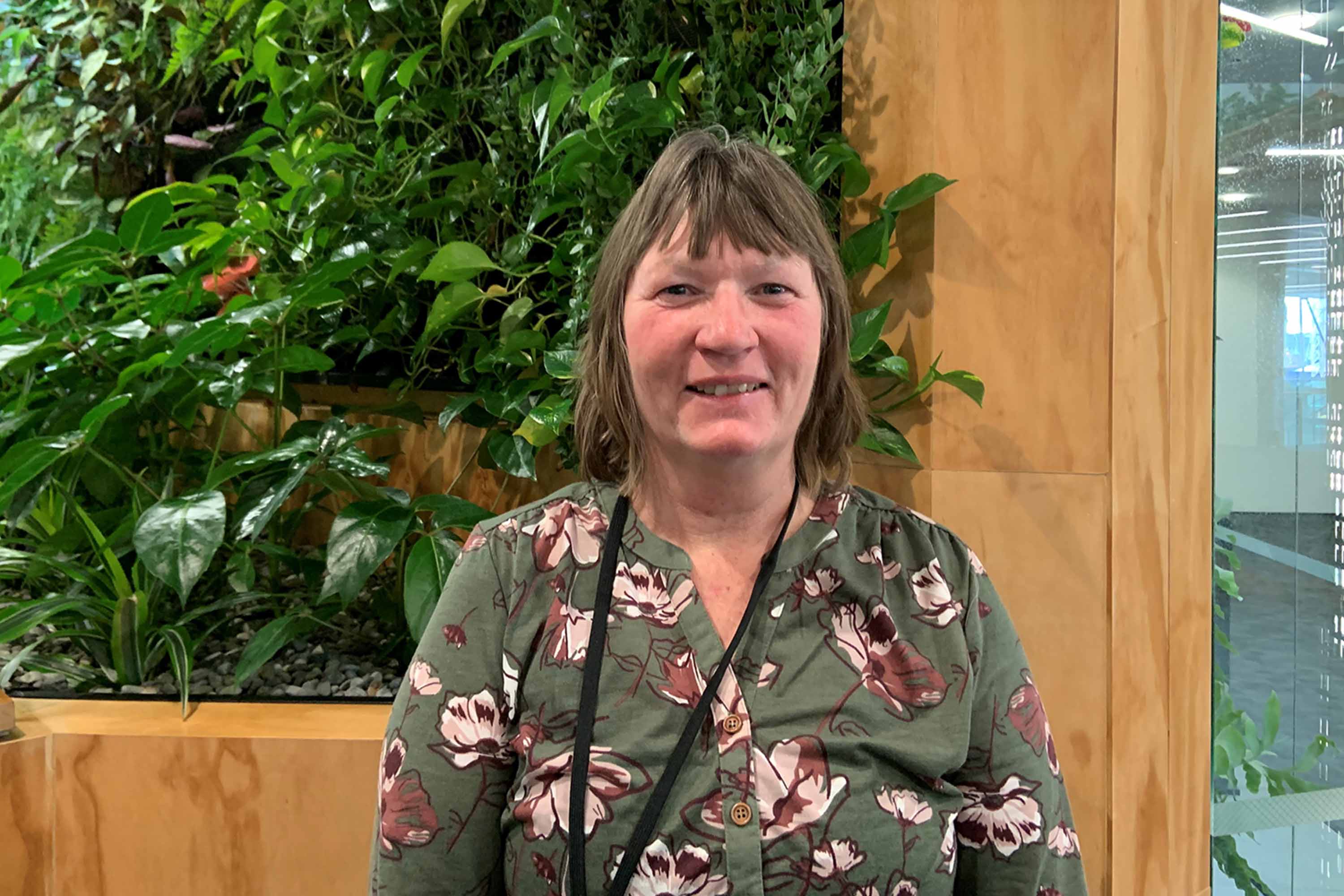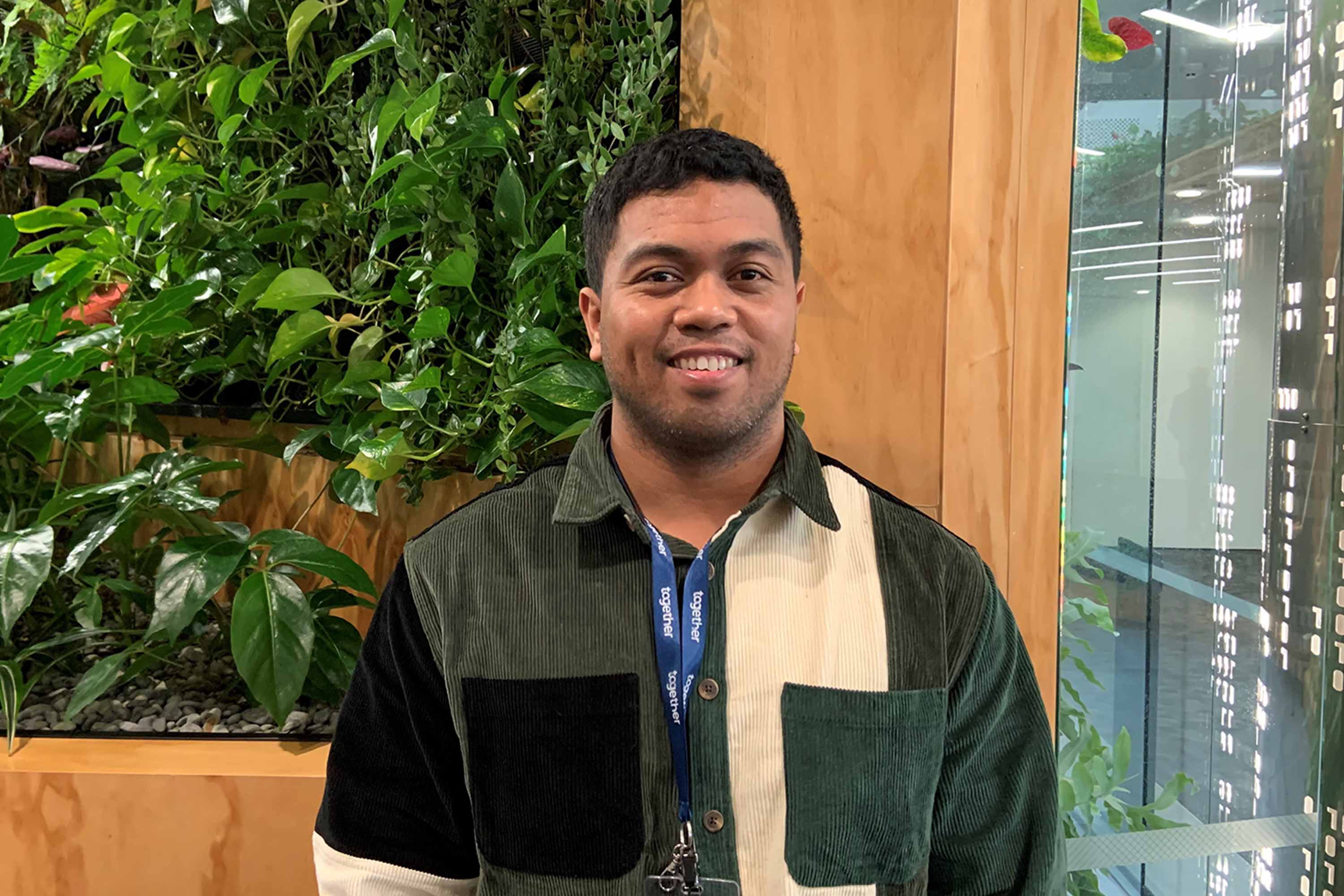Do you have a question? Want to learn more about our products and solutions, the latest career opportunities, or our events? We're here to help. Get in touch with us.
Do you have a question? Want to learn more about our products and solutions, the latest career opportunities, or our events? We're here to help. Get in touch with us.
We've received your message. One of our experts will be in touch with you soon.

“My hopes for the future of Ngā Mihi are that it succeeds and changes the lives of prisoners and their friends and family, for the better,” says Datacom intern Maria Perriton and graduate of the AWS re/Start programme.
“At the moment it can take up to six months for basic items from friends or family to be approved and distributed to inmates. There’s also a lot of confusion around what qualifies as an approved item.”
Ngā Mihi is a ‘fast lane’ e-commerce solution to help simplify the process of getting basic items into prisons, which was first pitched as an idea at Datacomp, Datacom’s annual hackathon-style innovation competition.
Both Maria and Kafo Tila – a graduate of another Datacom partner programme Mission Ready Accelerator – were encouraged by their inhouse mentors to participate in Datacomp.
Maria was part of the Datacomp team Ngā Mihi that developed the winning solution in response to a brief provided by Siosaia Maka and Livi Kavesi talking about the challenges of getting basic items, such as socks and footwear, into prison.
Siosaia and Livi have both spent time in prison and are graduates of Take2, another Datacom partner programme that teaches prisoners to code and connects people with internships when they are released to create a foundation for a career in tech.
The current system in prisons requires Corrections to approve every single item that family want to send in to prison and for some prisoners and their loved ones that can turn into a frustrating process that takes months.
As part of a powerful pitch for the Ngā Mihi project, Livi shared the fact that “just six months ago I was in prison, one of 7,500 people who struggle to obtain basic items. We want to provide a service that helps people navigate through the complex processes of prison."
His own experience saw it take four months for his family to get sneakers sent to him, with the shoes being rejected at one point because the orange laces were too close to red, a banned colour in some Corrections facilities.
Livi says his hope for the future is that Ngā Mihi will be picked up by Corrections and used in prisons around the country.
During the Datacomp challenge the Ngā Mihi team prototyped a marketplace website where people can purchase pre-approved items for their incarcerated loved ones, and ideated on the provision of a welcome box of essential goods, like underwear and socks, for those entering prison. Since the Datacomp competition the team have done more work on the business model, prison requirements, solution design, technology stack research, and build.
Since their contracts were extended after the Datacomp challenge, Kafo and Maria have been focused on investigating various tech stack solutions that would be suitable for the prison environment and have made a start on the pilot build, and have worked alongside the wider Datacom project team including practice lead Jessica Parkes, graduate service designer Zoe Matthews, graduate UX design Val Osorio, graduate developer Jacob Gallagher, and graduate developer Natnael Gebremichael.

“At present, the process of getting property to prisoners is flawed and quite messy; it’s time to change this,” says Maria, who is optimistic about the impact Ngā Mihi is set to make.
And Maria’s optimism is well-placed.
Ngā Mihi was one of 14 projects selected for this year’s GovTech accelerator programme, run by Wellington-run innovation programme Creative HQ. The projects went through an intensive 13-week workshop process to develop the ideas and were showcased in the Beehive at the start of December: Ngā Mihi was selected as the showcase winner and the team has won $50,000 to help make the platform a reality.
Kafo says working on a project that makes a tangible difference in the lives of prisoners has been an incredible experience.
“By meeting their needs, not only will Ngā Mihi support prisoners mentally, but it will also help their restoration and healing.”
“Being at Datacom and working on Ngā Mihi has been one of the best experiences of my life. It’s already been completely transformative, and I know I’m only going to keep growing.”
After taking part in the intensive training provided by AWS re/Start and Mission Accelerator, Maria and Kafo say their internships with Datacom were a critical step where they had the chance to apply their knowledge, work on real projects and receive mentoring from people working in the tech sector.
“re/Start gave me a solid foundation in problem solving, solutions design, working in a team and presenting to other people,” says Maria. “While working on Ngā Mihi has taught me about the modern process of bringing an idea to life, from discovery, to persona development, to ideation, to design and build.”
Kafo says that starting Mission Ready and embarking on his IT career has opened many doors he was unaware of and helped him find fulfilment through continuous development opportunities.
“On my journey so far, I’ve learnt to back myself with my work, seek assistance when required and not give up until the problem is solved.”
Delivery Lead in the Emerging Technology team, Dipesh Trikam, mentored Maria and Kafo throughout their initial placements, and selected them to work on Ngā Mihi, saying each had demonstrated they were a perfect fit in their own respect.
“Maria was a true believer of the Ngā Mihi project from the moment she heard it being pitched at Datacomp, she supported the idea along with her team when no one else did, and her technical background was well suited to advance the project.”
“Kafo has great work ethic and seeing his performance through his internship with Datacom and ability to implement solutions at pace was exactly what was needed.”
He says there is immense value in the programmes they each undertook, and that interns who join Datacom through partnerships like AWS re/Start and Mission Ready bring an innovative edge that sets them up for success as assets to the industry.
“Not only do they learn from us, but we learn from them too - it's a give and take that sees benefits on all levels for everyone involved.”
Completing the AWS re/Start and the Mission Ready Accelerator programmes were what led to the opportunities with Datacom for Maria and Kafo, but they have both had very different journeys into the tech sector.
Maria says sustaining an injury during her work on a horse stud farm might have been fate as it put her back on the right path.
A 1996 graduate of Lincoln University, where she majored in applied computing, Maria worked as a software engineer for 15 years. She had trouble finding work upon her return home to Christchurch after a stint in the UK, so entered the equine scene as a means of ‘paying the bills,’ despite her desire to be full time in IT.
“I was applying for IT jobs without success when I first got injured and noticed many had AWS Web Services as a desired skill, so my occupational therapist found the course for me – now, the rest is history,” says Maria.
“I loved my time working with horses, it built my creativity and resilience, and is a big part of who I am. I’m just ready for the next chapter of my life.”
Kafo transitioned into the realm of tech after experiencing isolation and boredom as a forklift driver.

“I came to the realisation that I was not growing,” says Kafo. “I wanted more out of work but there was nothing left to learn, and I was unhappy. I felt like I missed out two years of my son’s life as I would sleep throughout the day and work during the night, which took a toll on my mental and physical health.”
Kafo says everything happens for a reason and he’s thankful that his time as a forklift driver made him reconsider his priorities.
“This realisation was a turning point for me, and I started searching for jobs that could give me flexibility.”
“When I came across Mission Ready, I knew I wanted to apply but I was scared to enter uncharted territory and start studying. Not to mention, I didn’t know how to use a computer at all – it was a whole new world – but I’m so proud I took the leap.”
He now tutors students at Mission Ready headquarters.
“I’m excited to be the change and become a role model for others who were in my situation and show them it just takes perseverance and faith in your dreams.”
Both Kafo and Maria are looking towards a future in tech – Maria wants to continue on her software development path and Kafo wants to explore opportunities in app development.
“The key is to find comfort in the discomfort that comes with challenges, because it means you’re growing,” says Kafo. There is so much out there to learn, and the only way to find out what you’re capable of is to try.”